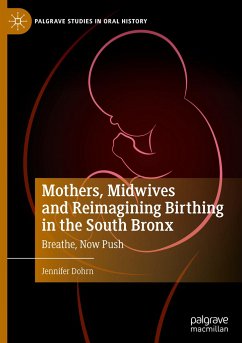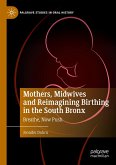Women came through the doors at a community-based birthing center in the South Bronx seeking prenatal care. They had heard about the center from a neighbor, a parents' group at their children's school, or the local mosque or church. What they found when they arrived was a brightly-colored waiting area that resembled a living room, children immersed in games in a corner, and staff that reflected the mosaic of cultures living in the surrounding apartments. They also met midwives who asked about their lives, their children, their families and traditions. If pregnancies developed complications, back-up obstetricians were there to give higher levels of care, with the women returning to the midwifery center afterwards. The results were healthy mothers and healthy babies. For over twenty years the center became a haven for women's health care and a national exemplar.
It is a tragic and unjust paradox that the United States, the highest income country in the world and the country with the largest budget for perinatal care, has rising rates of maternal mortality that disproportionately affect women of color. Yet an inner-city maternity center with midwifery care found solutions to the challenge of making birth safe for low-income populations, especially women of color. This oral history presents the stories of twelve women who participated in this care. As they tell it, the experience changed their lives and their understanding of what safe, quality maternal care can achieve. Jennifer Dohrn examines the systems that perpetuate disparities in care, from global to local, and describes essential components needed for change, using oral histories as evidence for the way forward towards maternal health as a human right.
It is a tragic and unjust paradox that the United States, the highest income country in the world and the country with the largest budget for perinatal care, has rising rates of maternal mortality that disproportionately affect women of color. Yet an inner-city maternity center with midwifery care found solutions to the challenge of making birth safe for low-income populations, especially women of color. This oral history presents the stories of twelve women who participated in this care. As they tell it, the experience changed their lives and their understanding of what safe, quality maternal care can achieve. Jennifer Dohrn examines the systems that perpetuate disparities in care, from global to local, and describes essential components needed for change, using oral histories as evidence for the way forward towards maternal health as a human right.








